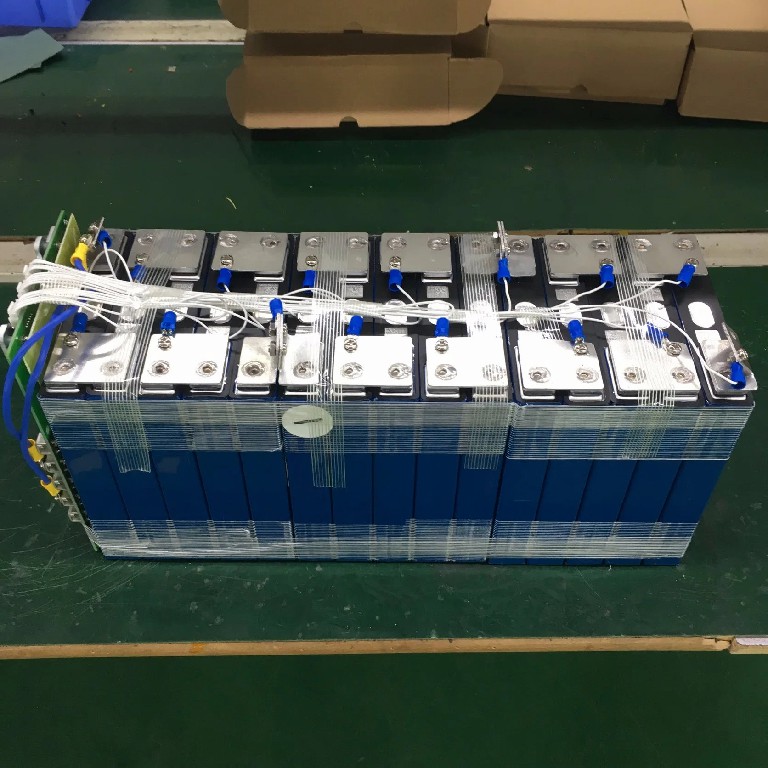The BMS is a set of electronic devices that monitor and manage all battery performance. Most importantly, it prevents the battery from operating outside of a safe range. Investing in a LifePO4 Battery Management System (BMS) is a great way to ensure safe, efficient and long-lasting operation of your lithium iron phosphate batteries.
BMS is critical to the safe operation, overall performance and longevity of the battery. Additionally, it protects anything that uses LiFePO4 batteries (computers, refrigerators, etc.) as well as the people who use it. Although LifePO4 chemistry is inherently stable, the BMS remains the primary core that acts as a balancer to safely charge and discharge the battery, monitor and prevent battery short circuits.
What is LifePO4 BMS?
The LifePO4 battery management system is a dedicated electronic device for managing LiFePO4 battery packs. It monitors individual cell voltage, temperature and overall battery pack status. BMS protects batteries by preventing overcharge, overdischarge and short circuit. It also balances the battery and controls charging and discharging.
Risks of not using BMS?
The battery management system (BMS) plays an irreplaceable role in maintaining the health and operation of the LifePO4 battery pack. Without a BMS in a battery pack, there are significant risks that could have an irreversible impact on the safety, longevity, and reliability of the battery system.
Battery overcharged
Overcharging is a foreseeable risk for LiFePO4 batteries without a BMS installed. Overcharging can lead to excessive voltage, which can cause the battery to overheat, shorten its service life, and even cause the battery pack to overheat and cause a fire or explosion. The BMS continuously monitors the battery voltage and cuts off the charging process when it reaches a predetermined safe voltage limit. Without a BMS, there is no way to prevent overcharging, which will cause irreversible damage to the battery and even personal threats.
Exceeding the reasonable battery temperature
LiFePO4 batteries are sensitive to high temperatures, which can cause irreversible damage to the battery. The BMS monitors the battery temperature and triggers appropriate measures, such as stopping charging or reducing the discharge rate, to prevent excessive temperatures. Without a BMS, the temperature cannot get too high, causing battery damage.
Affects battery life
Proper battery management can significantly affect the service life of LiFePO4 batteries. Without a BMS, LiFePO4 batteries run the risk of causing capacity loss, premature aging and cell degradation.
LifePO4 BMS unit used by Pknergy
All Pknergy batteries are equipped with BMS, which integrates accurate battery fuel gauge, battery balancing, protection circuitry, system control firmware and other safety functions. Designed for LiFePO4′s lower nominal voltage, flat discharge curve and thermal stability.
The main components include the battery monitoring board, main control board, MOSFETs for charge/discharge control, and shunts for measuring power flow, which makes charge/discharge management easier to control. LifePO4 BMS can trigger protection when any battery exceeds safe voltage, current or temperature ranges.
Overall, we will equip the safest and most suitable BMS according to the number of batteries selected by the customer, which makes our batteries simpler, more affordable and longer lasting.
Here are some of the features of LifePO4 BMS used by Pknergy:
Overcharge protection
If any battery exceeds the safe charging voltage limit (approximately 3.65V), the BMS will stop charging to avoid lithium plating on the anode. This may permanently damage the battery cells.
Over discharge protection
When the battery voltage drops to a low cutoff voltage of around 2.5V, the BMS disconnects the load so the battery does not draw too much power. Deep discharge can cause internal short circuits.
Short circuit protection
If the current is too high, the BMS will quickly power down to prevent catastrophic battery damage. Current limiting helps avoid thermal runaway, but it’s bad.
Cell balancing and temperature monitoring
Calculate the amount of current that can safely flow in (charge) and flow out (discharge) without damaging the battery. to maximize capacity and longevity.
Monitor remaining battery power
The BMS also monitors the remaining charge of the battery. It continuously tracks the energy entering and leaving the battery pack and monitors the voltage. It uses this data to know when the battery is depleted and shuts it down promptly. This is why LifePO4 batteries don’t show signs of depletion like lead-acid batteries.
Conclusion on LifePO4 BMS
All in all, a good BMS can help you protect your battery. Let you enjoy the convenience brought by the energy storage system with peace of mind, so that you can go out and stay with peace of mind. With Pknergy superior LifePO4 BMS, our batteries will provide long-term reliable energy storage and power for your whole-house backup power system.
Post time: Nov-09-2023


